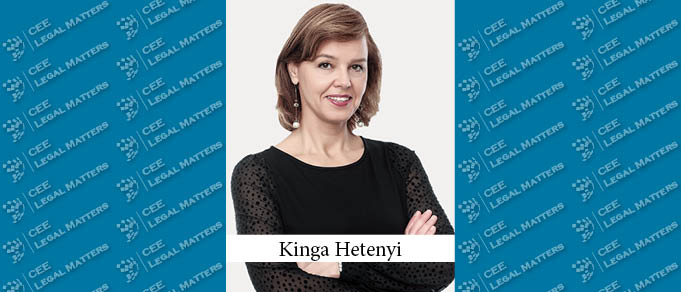After a record deal value in 2022, the outlook for M&A in Hungary for 2023 remains positive despite several risk factors. What are they and what could compensate for them? What other factors could have an impact on the current trends?
Global M&A trends are always perceived with some delay in Hungary. While global M&A boomed mostly in 2021 and the beginning of 2022 and started to recede in the second half of 2022, in Hungary the same boom lasted until the end of 2022. As a result, after Poland and Austria, Hungary was third in the CEE region in terms of M&A deals with a little over EUR 3 billion in value. While this figure was largely due to the acquisition of Vodafone, the fifth-largest deal in the region, the number of deals in Hungary in 2022 remained the same as in 2021. Most M&A activity took place in the technology sector, with energy being second, and real estate third. Also notable is Hungary’s vibrant private equity sector, which has developed significantly in the last couple of years and is currently very active. Transaction advisors have also reported increased demand for their advice from private equity circles.
The Hungarian M&A market started to experience a slowdown only at the very end of 2022, when inflation rose to a level higher than the European average, with a consequential increase in interest rates. This has prompted the government to introduce several measures, including price caps on fuel and various food products, whose controversial effects and potential contribution to inflation are still being disputed by economists. High inflation has also triggered a legislative increase of the merger control thresholds applicable since January 1, 2023.
M&A experts are still largely positive about 2023, but some have struck a note of caution. Of course, market players may simply be buying time, because high inflation makes deals riskier for sellers. This may, however, lead to an even bigger rise in deals in the mid-term, just like we saw in 2021 after the holdback by anti-Covid measures. At the beginning of this year, the Hungarian government has already made serval promises to decrease inflation to a one-digit figure by the end of the year. This seems realistic given that inflation has already stagnated in Western Europe. Political aspects, especially the war in Ukraine, as well as the debate over the disbursement of EU funds to Hungary and the infringement proceedings pending against Hungary, may also have an impact and could hold some transactions back even longer.
It is also worth mentioning that high foreign direct investment in Hungary reached a record of more than EUR 6 billion in 2022. Given the wide scope of the Hungarian FDI approval regimes (Hungary has two running in parallel), the question of the need for FDI approval by the Ministry of Economic Development arises not only in every international M&A transaction but also in many finance transactions. Unfortunately, no official statistics are available about either the total number of Hungarian FDI cases or the number of approvals or denials. In our experience, however, approval is granted in most cases, and there are only very few areas that the government regards as sensitive or strategic to deny approval. Hungarian FDI procedures are document intensive, but the ministry reacts within reasonable deadlines.
One of the cases where approval was denied has been submitted to the European Court of Justice (ECJ) for a preliminary ruling. The case has raised valid questions about the compatibility of FDI regimes that also apply within the EU/EEA (such as the second Hungarian FDI regime) with the free movement of capital under the Treaty on the Functioning of the European Union; and about the relationship between a previous merger control process, in which the Commission approved the acquisition, and a further acquisition by the same investor that is being scrutinized under the relevant Hungarian FDI rules. We are currently waiting for the opinion of the ECJ General Advocate.
By Kinga Hetenyi, Office Managing Partner, Schoenherr Budapest
This article was originally published in Issue 10.3 of the CEE Legal Matters Magazine. If you would like to receive a hard copy of the magazine, you can subscribe here.
















